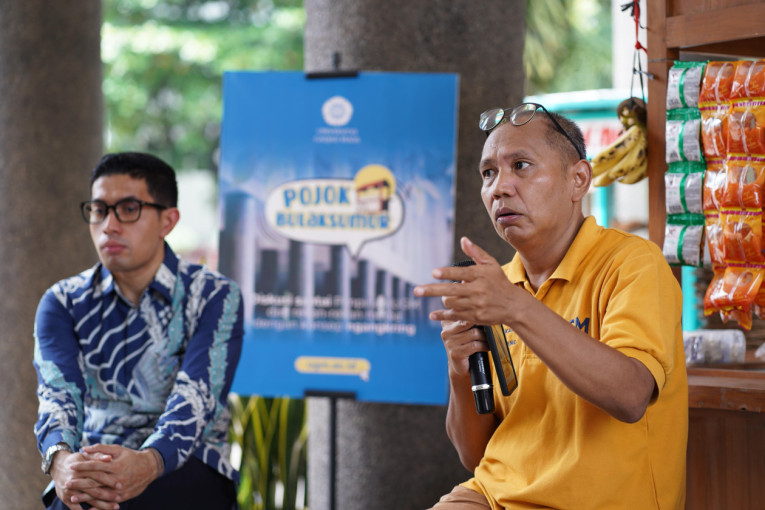
The first 100 days of the Prabowo-Gibran administration’s policies in law, economics, and political governance have been closely scrutinized by the public.
The administration has not been immune to criticism, especially regarding policy blunders made by ministers in the face of the government’s efforts to cut budget spending and the decline in consumer purchasing power.
The administration’s performance is seen as ineffective, with several programs showing a lack of clear planning and execution on the ground.
In the area of rule of law, democracy, and constitutional law, Dr. Hendry Noor Julian, a lecturer at UGM’s Faculty of Law (FH UGM), raised concerns about the weakening of the government’s check-and-balance system.
He referenced Donald Black’s theory from The Behavior of Law, which states that political proximity can cause laws to lose force.
This refers to the dominance of coalitions in parliament, which could reduce the effectiveness of oversight over government policies.
“Instead of acting as a control mechanism, the executive-legislative relationship now tends to be more of a partnership,” Dr. Julian explained during the Pojok Bulaksumur Discussion titled “From Promises to Actions: 100 Days of the Prabowo-Gibran Administration,” held in the central corridor of UGM’s Central Office, Friday (Feb. 7).
At the beginning of his administration, Dr. Julian noted that Prabowo’s idea of forgiving corrupt officials drew significant criticism and backlash. From a legal standpoint, a person’s status as a corrupt official must be based on a final legal ruling.
If mechanisms allow corrupt officials to be freed after returning state funds, it could lead to numerous issues, particularly in terms of law enforcement and justice.
“Given the current legal and institutional systems, I’m not even confident that more than 20 percent of this policy will succeed,” Dr. Julian remarked.
From a political and governance perspective, Dr. Mada Sukmajati of UGM’s Department of Politics and Government noted that the promises outlined in Asta Cita—the eight priority programs of the Prabowo-Gibran administration—have yet to materialize.
He mentioned several programs, such as free nutritious lunches, free health check-ups, and the development of excellent schools, that still lack clear planning and execution.
“If we’re talking about well-designed programs with quick results, the designs should have been clear within these 100 days. But the reality is that the implementation is still partial, and in some aspects, we don’t even know how the mechanisms work,” Dr. Sukmajati added.
Despite the limited policy achievements, Dr. Sukmajati also questioned the high public satisfaction levels with the Prabowo-Gibran administration.
“An approval rating of 80 percent raises significant questions. Is it because the public remains optimistic about the government, or were the surveys conducted under certain conditions that skewed the results?” Dr. Sukmajati explained.

UGM economist Dr. Yudistira Hendra Permana also scrutinized the administration’s debt relief policy for MSMEs, farmers, and fishermen. He saw it as more of a desperate measure than a long-term solution to improving the economy.
“Is this a step to stimulate economic growth, or does it signal that the government has run out of options?” he asked.
Dr. Permana also addressed budget cuts in various sectors due to the growing fiscal deficit and policies that fail to consider long-term economic sustainability.
Furthermore, Dr. Permana commented that the administration’s target of achieving 8% economic growth was overly ambitious, given the ongoing global economic slowdown.
In fact, over the past few months, Indonesia’s economic growth has faced deflationary pressures.
“Reaching 8% growth in the next five years seems unrealistic without concrete strategies and more structured economic policies,” he said.
Answering reporters’ questions about the political context, Dr. Sukmajati noted that the Prabowo-Gibran administration is still seeking balance in power dynamics and oligarchic interests.
The relationship between the ruling elite and business interests is undergoing a reconfiguration, with both past and new economic-political networks negotiating dominance over current government policies.
Dr. Sukmajati also commented on President Prabowo’s reliance on military networks to support government programs.
He believed this choice was logical, as the limited political and bureaucratic networks meant the military became the primary tool for distributing priority programs, such as free school lunches.
“However, this approach could also pose challenges for law and democracy,” he noted.
Experts view this tradition of evaluating the administration’s first 100 days as an important moment to assess the initial steps of government policies.
While it is not the ultimate measure of a government’s success, the first 100 days often indicate the direction of policies and the commitment of leaders to fulfilling campaign promises. Therefore, the public and the media are expected to continue monitoring key programs to ensure they bring real benefits to the people’s welfare.
Author: Bolivia
Editor: Gusti Grehenson
Post-editor: Afifudin Baliya
Photographer: Firsto

